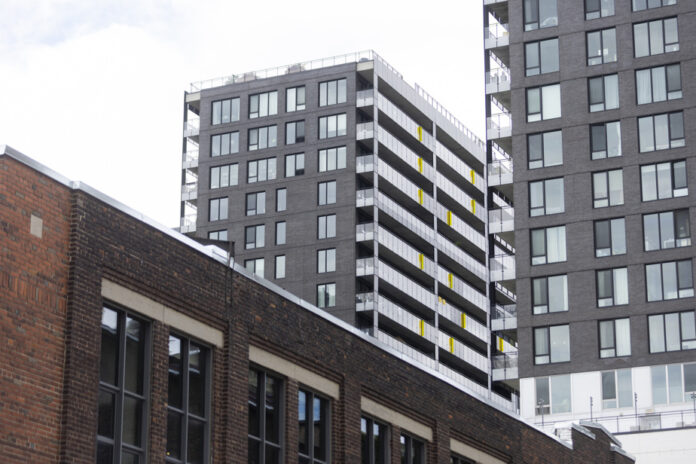The residential sector will experience a 2024 in two stages, real estate brokers predict. A difficult first half of the year with few transactions and downward pressure on prices; then, thanks to the decline in interest rates, a resumption of activity in the second half of the year. Overall, according to APCIQ market forecasts, the number of transactions will decrease by only 2% and prices will remain stable.
The Professional Association of Real Estate Brokers of Quebec (APCIQ) took stock of the residential market on Thursday. The remote event was followed by more than 1,000 brokers, curious to know the market forecasts for 2024.
Across the province, the market is expected to experience its fourth consecutive year of decline in the number of resales. The APCIQ forecasts nearly 75,000 transactions, down slightly by 2% compared to 2023, but down 33% compared to the 112,200 transactions recorded in 2022.
In terms of the median house price, it will be at the same level as at the end of 2023, or $411,300, according to APCIQ forecasts. As a guide, the median price in 2020 was $295,000. This means that the price of a house in Quebec has jumped 39% between 2020 and today.
“Market conditions should ease further outside the Montreal region,” said Charles Brant, director of market analysis at the APCIQ, in an interview. There might be less appeal. We are witnessing a swing of the pendulum. We see that the large centers are regaining some appeal. Which was not the case in 2023.”
The scenario should repeat itself in Montreal: a drop in transactions of 3% in 2024 and a slight price increase of 2% for houses and 1% for condos. The median price of a house is likely to settle at the end of 2024 at $549,400 and that of a condo, at $395,600.
In the Quebec region, a market which remained more vigorous than in Montreal this year, activity could slide by 6% in 2024, just below the 8,000 resale mark. On the other hand, the price increase will be more significant, at 5%, anticipates the APCIQ. The median home price will then reach $368,000.
Immigration should fuel demand for houses. Quebec welcomed 109,000 new arrivals during the first six months of 2023, after having welcomed 150,700 over the whole of 2022.
Not all of them will be satisfied with the status of tenant. The probability of purchasing a house in 2024 is greater than 50% for 3 out of 10 newcomers, according to a Léger survey.
The low level of house and condo construction is forcing buyers to look toward resale. Wages are on the rise and unemployment will remain at a reasonable level during the year, predicts the APCIQ, despite the looming recession.
“The wealth effect in Quebec has still been very significant for several years and could continue, in particular thanks to the transition of our economy towards a carbon-free economy and all the colossal investments that this implies in our market because we have a green electricity, said Charles Brant. This encourages the arrival of companies seeking to decarbonize their production. »
As for the supply of properties for sale, stricter regulations regarding rentals of less than 31 days will encourage owners to put their property on the market. The mortgage shock of renewing the loan at a higher rate will force some to get rid of their homes.
In terms of construction starts, recovery is not in sight in 2024.
The Association of Construction and Housing Professionals of Quebec forecasts 46,000 new homes in 2024, an increase of 15% compared to the 40,000 estimated in 2023. This last figure represents a drop in construction starts compared to the 2022 harvest.
The Quebec Construction Commission, responsible for applying the law on labor relations in construction, which regulates this industry, is of the same opinion with a forecast of 42,000 units next year, essentially at the same level as in 2023.
“In the Montreal region, we will end the year 2023 with only 15,000 housing starts,” says Francis Cortellino, senior economist at the Canada Mortgage and Housing Corporation. For the province, we expect 39,000 this year, which is less bad than in Montreal. We think that construction starts will gradually resume next year. We will come out of the trough, but the recovery will however be moderate. Financing costs for promoters will possibly fall, which will make certain projects profitable. »















